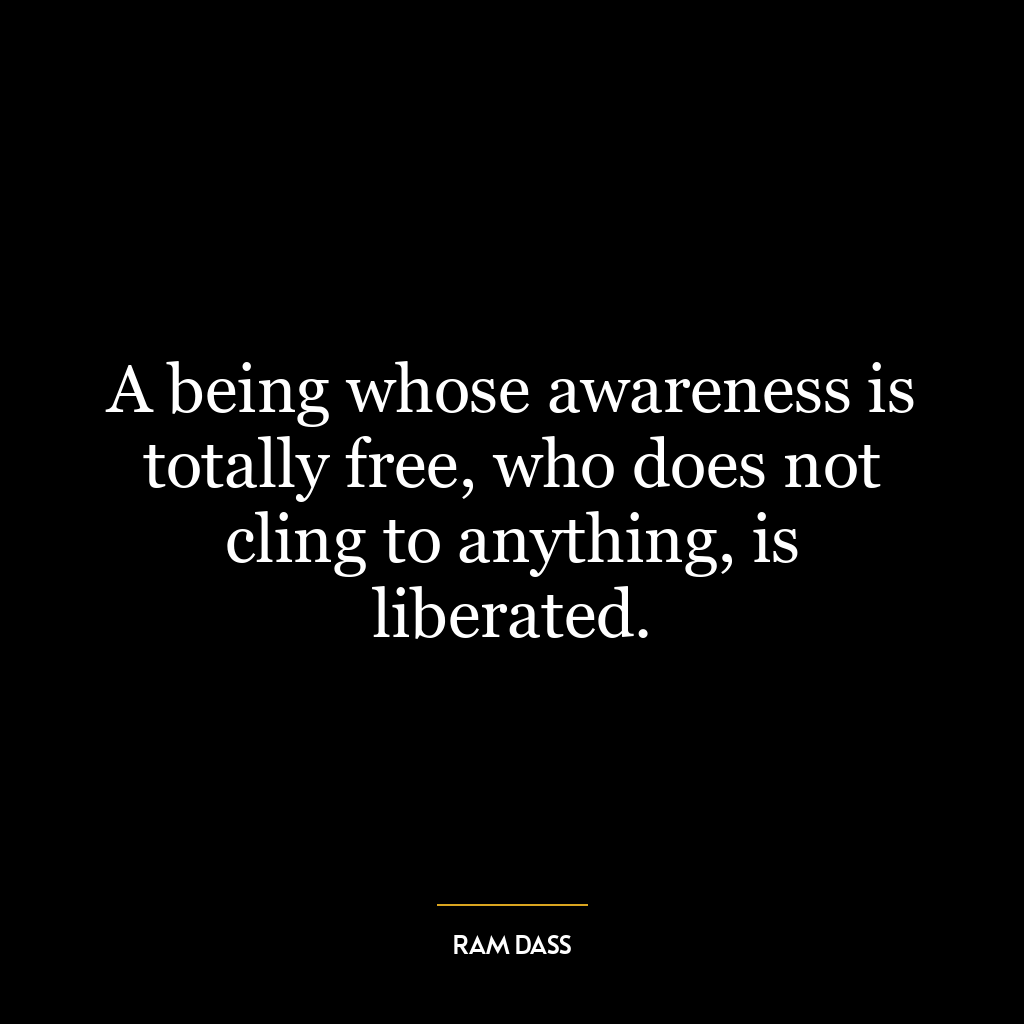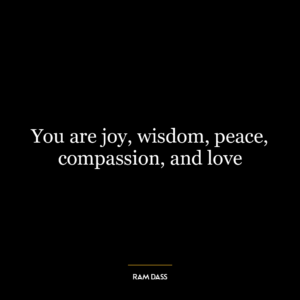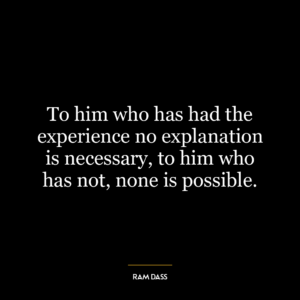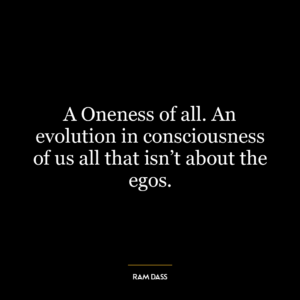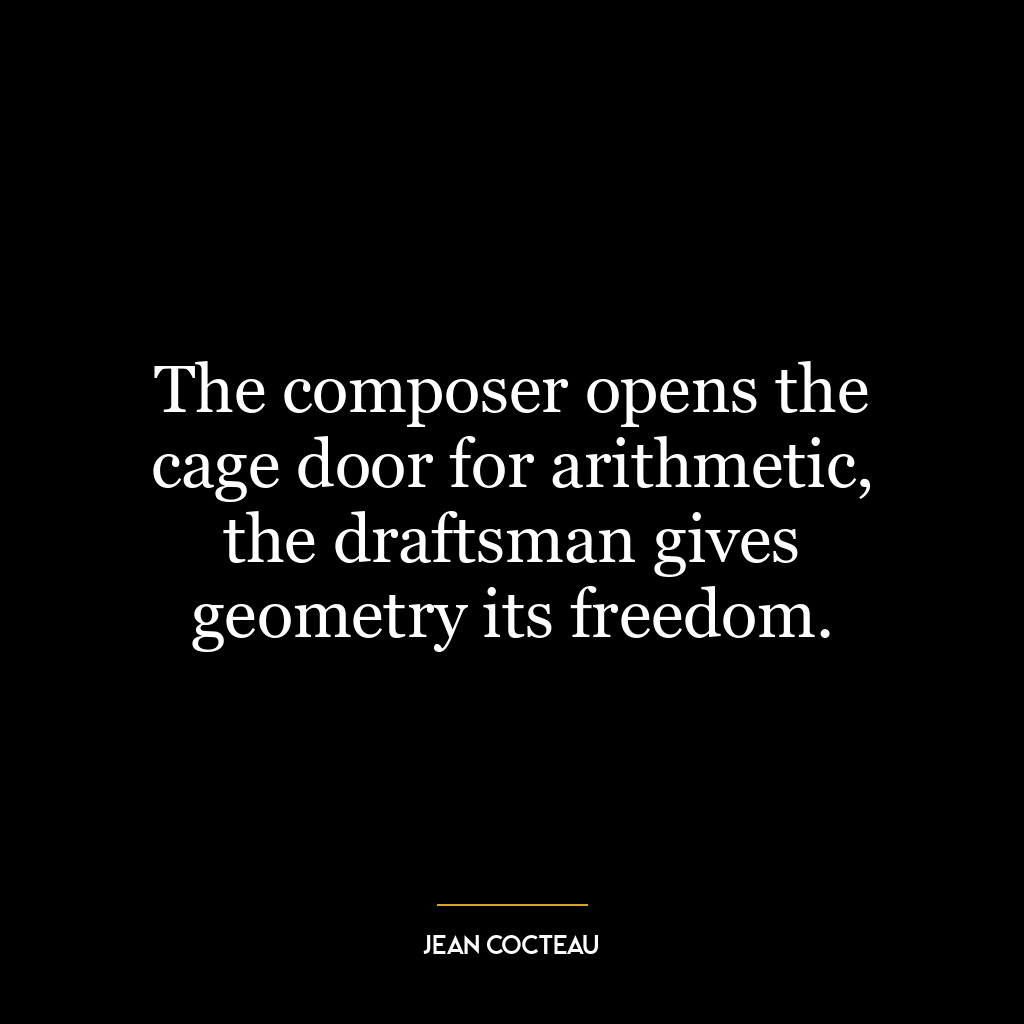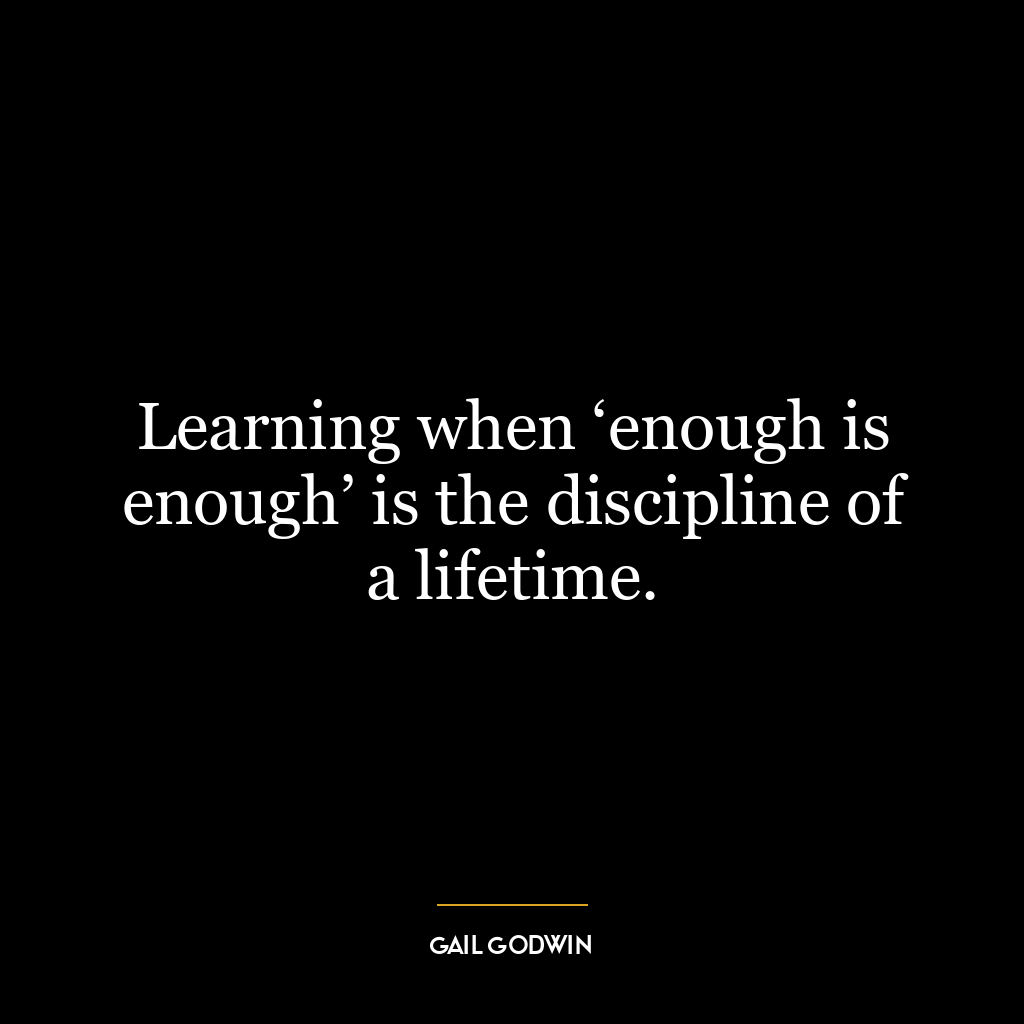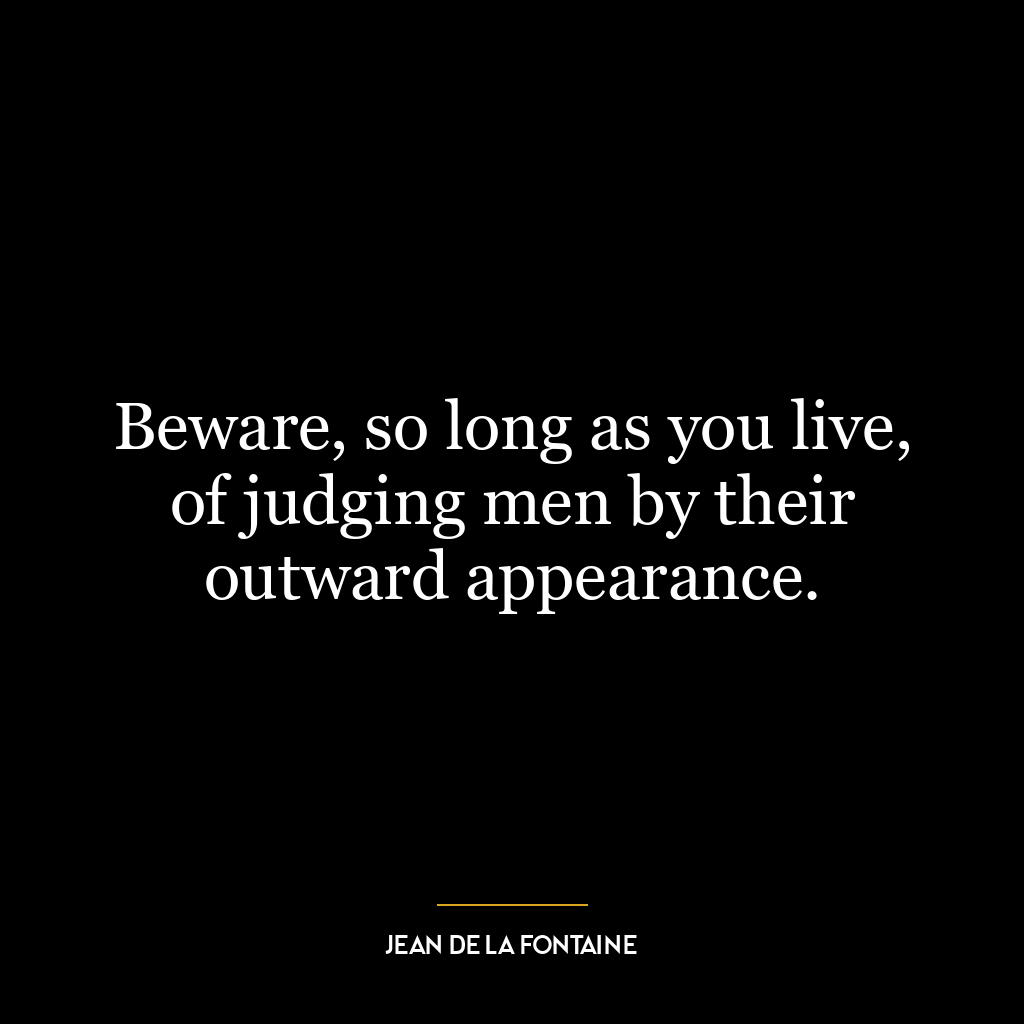A being whose awareness is totally free, who does not cling to anything, is liberated.
This quote is about the concept of liberation through non-attachment. It suggests that true freedom comes when one’s consciousness is unburdened by attachments or clinging to people, things, or ideas. This doesn’t necessarily mean physical detachment, but rather an emotional and mental state of non-attachment, where one doesn’t allow their happiness or peace to be contingent on external factors.
The phrase “A being whose awareness is totally free” refers to a state of mind that is not bound by prejudices, preconceived notions, or rigid beliefs. It’s about having an open mind that is ready to embrace change and new experiences without fear or resistance.
The second part of the quote, “who does not cling to anything, is liberated,” is about the idea that clinging or attachment leads to suffering. This is because attachments often lead to fear of loss, and this fear can limit our experiences and prevent us from living fully. On the contrary, when we let go of these attachments, we free ourselves from the fear and anxiety they cause, thus achieving liberation.
In today’s world, where materialism and consumerism are prevalent, this quote can be a reminder to focus on inner peace and happiness rather than external possessions or achievements. It encourages us to let go of societal pressures and expectations and to find contentment within ourselves.
As a tool for personal development, this idea can be applied by practicing mindfulness and meditation, which can help us become more aware of our attachments and how they affect our emotions and behaviors. By recognizing these attachments, we can work on letting them go, thereby achieving a state of mental freedom and peace.
In essence, the quote is suggesting that to achieve true liberation and peace, we must free our minds from the constraints of attachment and open ourselves to the endless possibilities that life offers.

